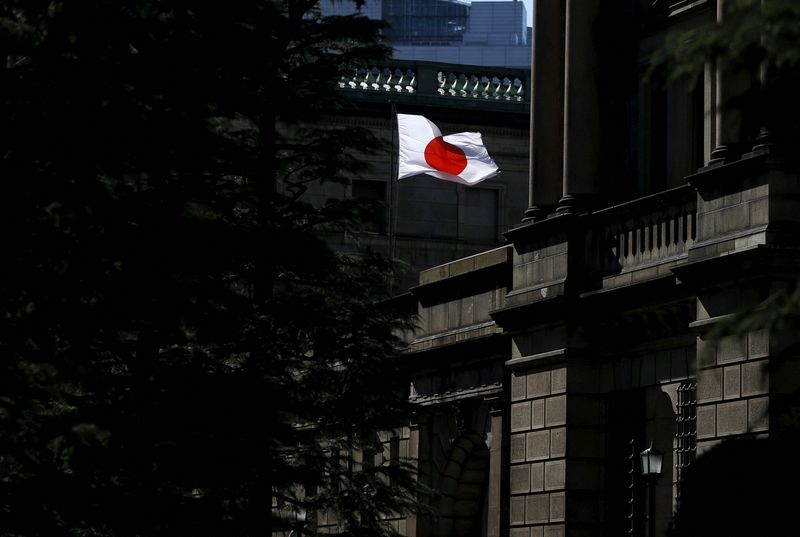By Leika Kihara and Takahiko Wada
TOKYO (Reuters) -Japan's core inflation stayed above the central bank's 2% target in June for the 15th straight month but an index stripping away the effect of energy costs slowed, data showed, suggesting the prolonged commodity-driven price pressures may have peaked.
Yet, with services price growth also slowing last month, policymakers will feel that wage pressures have yet to build up enough to warrant an imminent tweak to the ultra-loose monetary stance.
While the data heightens the chance the Bank of Japan (BOJ) will upgrade this year's inflation forecast next week, it may take pressure off the central bank to soon begin phasing out its massive monetary stimulus, analysts say.
"Cost-push inflation is finally beginning to peak out. We'll likely see inflation slow in coming months, which would allow the BOJ to keep policy steady for the time being," said Toru Suehiro, chief economist at Daiwa Securities.
"While services prices may rise next year, those for goods will stay weak. Inflation could hover around 1% next year."
The nationwide core consumer price index (CPI), which excludes fresh food costs, rose 3.3% in June from a year earlier, matching a median market forecast and accelerating from a 3.2% gain in May, data showed on Friday.
A hike in utility bills added to a steady increase in food and daily necessity prices, increasing the burden for households.
But an index stripping away both fresh food and fuel costs, which is closely watched by the BOJ as a better gauge of trend inflation, rose 4.2% in June from a year earlier, slower than a 4.3% gain in May.
It was the first slowdown since January 2022 in a sign the rapid pace of increase seen in the past few months, driven by a flurry of price hikes by companies, was moderating.
Services prices, closely watched by policymakers on whether inflation is becoming driven more by higher labour costs, rose 1.6% in June from a year earlier after a 1.7% gain in May.
The data comes ahead of the BOJ's closely-watched policy meeting on July 27-28, when the board will release fresh quarterly projections and discuss how much progress Japan is making towards sustainably achieving its 2% inflation target.
Core inflation in Japan's capital, set for release hours before the BOJ's policy announcement on July 28, also likely slowed sharply in July, according to a Reuters poll.
With inflation having exceeded the BOJ's target for more than a year, markets are simmering with speculation the BOJ could soon phase out its controversial yield curve control (YCC) policy as early as next week.
BOJ Governor Kazuo Ueda has stressed the need to keep policy ultra-loose until the recent cost-push inflation shifts into one driven by robust domestic demand and higher wage growth.
The key would be whether companies will continue offering higher pay next year, similar to this year, and start translating the rise in labour costs to services prices.
"If more firms hike wages and pass on the cost, services prices could overshoot," said Yoshiki Shinke, chief economist at Dai-ichi Life Research Institute.

"Inflation excluding food and energy will likely moderate ahead, but the pace of slowdown could be gradual."
Under YCC, the BOJ guides short-term interest rates at -0.1% and buys huge amounts of government bonds to cap the 10-year bond yield around 0% as part of efforts to fire up inflation to its 2% target.
